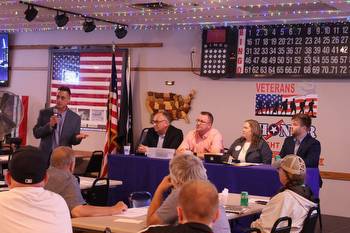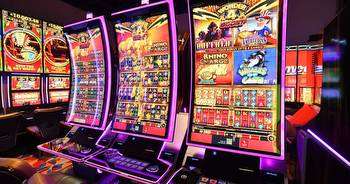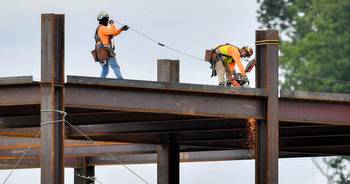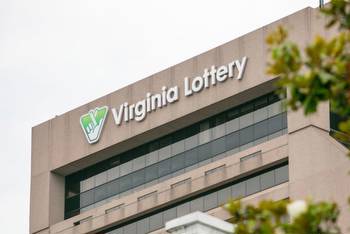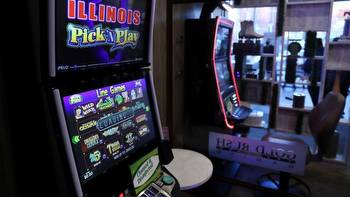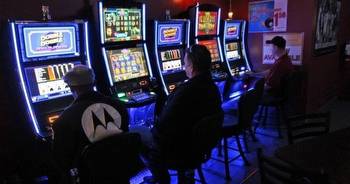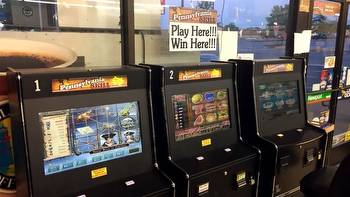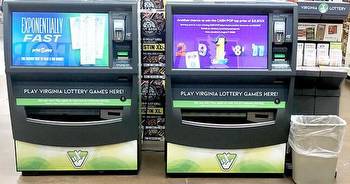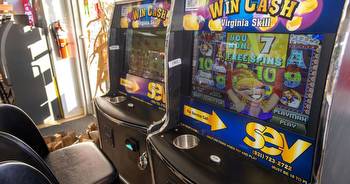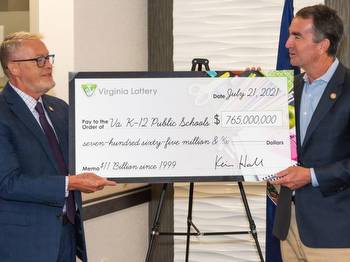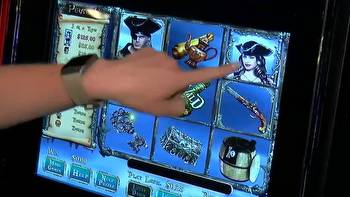Study: Gray machines pose risks, but has millions in revenue potential
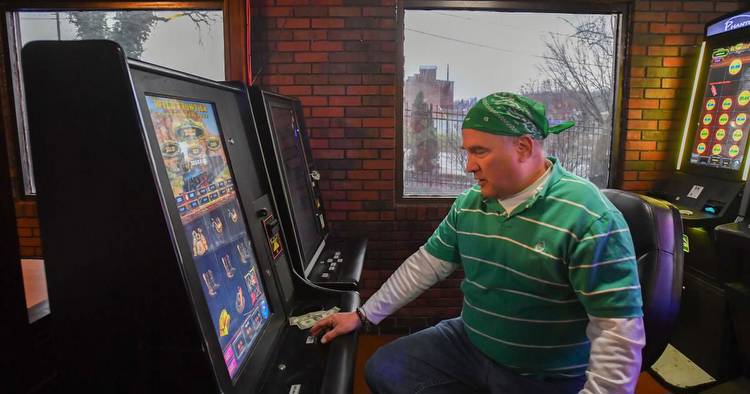
A 2022 Virginia gambling regulation study emphasized multiple concerns about “gray machines” but estimated — if properly regulated — they could generate substantial annual tax revenue.
Issued in October by the Joint Legislative Audit and Review Commission, the study recommends the Virginia Lottery oversee all types of gaming in the state.
The lottery currently oversees the operations of casinos, sports betting and lottery games. It determined the lottery was better equipped to oversee charitable gaming and play on historic horse racing games — both which are legal — and potentially gray machines that are unregulated, untaxed and currently illegal under state law.
“Gray machines currently pose a risk for fraudulent activities because there are no state regulations, audits, or compliance activities for the devices, manufacturers, or vendors. Without any compliance inspections, such as those conducted for slot machines, historical horse racing (HHR) machines, and electronic pull tab machines, the amount of money played and awarded to players cannot be determined,” according to the report.
“As a result, businesses that receive a proportion of machine revenue have no way of knowing whether they are receiving the correct amount of money from the machine manufacturers. Further, consumers who play the machines have no assurances that the games are fair,” the report continued.
This was based on information gathered between July 2020 and June 2021 when the games were temporarily allowed and the Virginia ABC collected $1,200 per machine, per month in tax revenues.
“Even if gray machines function properly, data collected by ABC in FY21 shows that gray machines have much lower average payout rates than other electronic gaming devices,” according to the report. “In Virginia, slot machines, HHR machines, and electronic pull tab machines all have average payout rates of roughly 90% meaning that, on average, gamblers make back 90% of the money they gamble on them. Gray machines appear to have an average payout rate of roughly 77%, meaning players make back less money on gray machines compared with those used in regulated gaming.”
The report notes Virginia regulators set requirements on payout percentages from electronic gaming machines. Virginia Lottery, for example, requires slot machines have an average payout between 84% and 100%, over time.
Charitable gaming regulations require electronic pull tab manufacturers disclose the payout percentage of machines.
Gray machines also create public safety risks, according to the report.
“Commonwealth’s attorneys from multiple localities reported that crimes such as assault and robbery have increased at establishments with gray machines,” according to the report. “They attribute this rise in crime to several factors, including that the machines generate loitering, the use of cash attracts crime and businesses that host the machines typically do not have the appropriate resources to secure the gaming environment.
“Georgia, one of the only states that regulates gray machines, has eliminated cash prizes to reduce crime associated with gray machines,” according to the report. “Instead of cash prizes, players in Georgia can win non-cash business merchandise (excluding alcohol, tobacco, and gift cards to other businesses) or lottery tickets. All prizes must be redeemed at the business where the machine is located, thereby reducing incentives for theft.”
In 2020, Georgia had 24,500 gray machines in a state of nearly 11 million residents. However Georgia has no sports wagering, horse race wagering, casinos, or HHR machines.
Georgia also prevents businesses from hosting more than nine gray machines at a single location or deriving more than 50% of its monthly gross retail receipts from gray machines. This prevents businesses from using gray machines to operate a business that’s primary function is gambling, according to the report.
“Gray machines likely compete with legal gaming and therefore reduce state tax revenue from authorized gaming — and also funding for the public purposes legal forms of gaming support,” according to the study. “Virginia limits the number of casinos and HHR machines in the state and the number of electronic pull tab devices that can be located in a single charitable establishment.
“Gray machines already outnumber HHR machines, electronic pull tabs, and slot machines in Virginia. Since unregulated gray machines generate no tax revenue for the state, competition from gray machines is likely depressing state tax revenue from legal gaming,” according to the report.
There were about 9,000 gray machines in Virginia during 2020-21 when the ABC taxed them. If that tax structure was reinstituted, the machines would generate about $130 million annually. The state presently has no idea how many gray machines operate across Virginia — either the skills games that were taxed in 2020-21 or other games that are purely games of chance.
If Virginia had 14,300 machines, at that same tax rate, they would generate about $206 million annually.
That same section of the report says total wagering on gray machines was $2.24 billion in 2020 and that net gaming revenues were more than $506 million, based on operator self-reported data to ABC. It then estimates with more than 14,000 gray machines, total wagering could be $3.5 billion with net gaming revenues of $795 million.
However that prior tax structure affords no direct oversight of the machine operations, as opposed to slot machines in the Bristol Casino — which are connected to a central monitoring system that allows lottery officials to constantly assure the state is collecting all of the gaming tax due.
JLARC estimates it would cost the lottery between and $10 million and $20 million annually to hire and train personnel to conduct the monitoring operations, establish the central monitoring and conduct oversight of gray machines in every corner of the state.
“If lawmakers opted to regulate and tax gray machines, taxing the machines based on their net gaming revenue ensures tax payments increase in proportion to the operators profits,” according to the report.
“If Virginia Lottery were to regulate the machines and use a central monitoring system, as Georgia does for the machines operating there, lottery could ensure the state is receiving all tax payments to which it is entitled,” the report concludes. “When ABC regulated the gray machines in FY21 on a temporary basis, it could not confirm gray machines’ gross or net gaming revenue, which made implementing a tax based on a percent of net gaming revenues impractical. Lottery could use a central monitoring system to enable a percent tax rate.”










